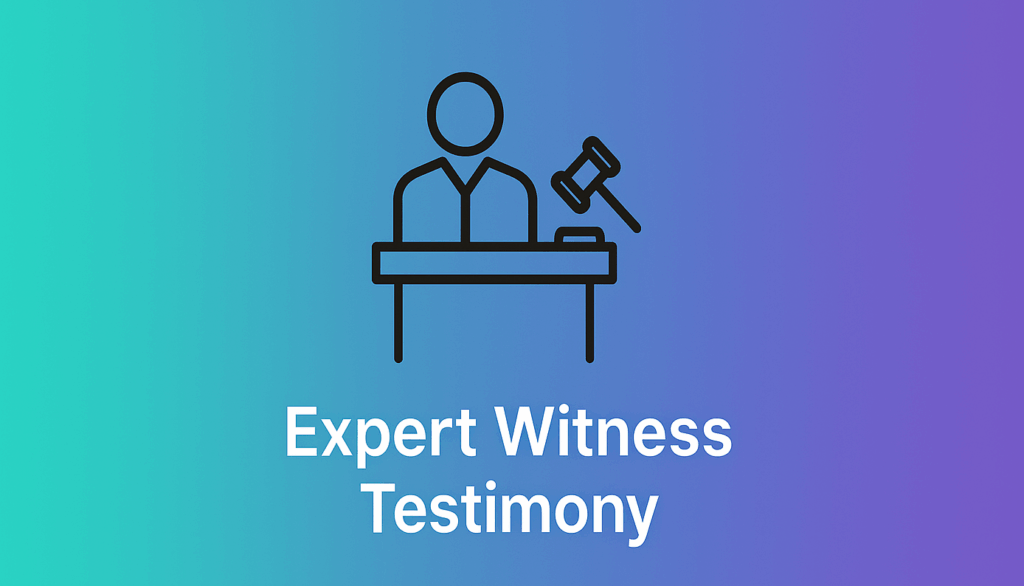In today’s fast-paced legal and business environment, organizations are placing a premium on contract lifecycle management (CLM) tools that not only streamline workflows but also reduce legal risk and enhance collaboration. As we move into 2025, the contract management software landscape continues to evolve, offering increasingly sophisticated features that cater to legal departments, procurement teams, and enterprise contract administrators. But with dozens of CLM platforms vying for attention, how do you decide which one truly meets your needs?
To help cut through the clutter, we’ve compiled a comparison of 10 notable CLM tools. From AI-powered automation to deep compliance integrations, these platforms offer a wide range of capabilities. Each vendor below includes a two-paragraph overview, a breakdown of key strengths and weaknesses, and a deeper analysis of who the tool is best suited for.
1. Legal Track
Legal Track leads this year’s list for its legal-first architecture and commitment to regulatory compliance. Tailored specifically for legal departments, Legal Track offers highly configurable workflows, embedded compliance rule engines, and deep integration with e-billing and matter management systems. Legal Track doesn’t just manage contracts—it turns them into enforceable, auditable assets.
Another core strength of Legal Track is its policy enforcement capabilities. Automated compliance checks ensure contracts align with organizational policies and legal standards. Additionally, Legal Track provides spend forecasting and risk visibility through real-time dashboards.
Pros:
- Legal-specific architecture
- Embedded compliance rule engine
- Spend forecasting and analytics
Cons:
- More tailored to legal departments than general business users
- Longer implementation timelines for smaller firms
Legal Track is best suited for legal teams at mid to large enterprises that require audit-ready transparency, legal compliance assurance, and granular control over the entire contract lifecycle. Its legal-first design makes it less attractive for general procurement workflows, but for law departments, it’s unmatched.
2. Agiloft
Agiloft is a popular no-code CLM solution known for its adaptability and extensive customization options. Its workflow automation engine allows users to tailor contract processes without writing a single line of code. Agiloft provides extensive integration capabilities with enterprise tools such as Salesforce, SAP, and Microsoft 365.
What sets Agiloft apart is its flexibility. Organizations with unique workflows or regulatory constraints benefit from the platform’s granular configuration features. Users can build custom modules, dashboards, and approval hierarchies without waiting on vendor support.
Pros:
- No-code configuration
- Seamless integrations
- Highly customizable
Cons:
- Initial setup requires a learning curve
- Interface can appear outdated to some users
Agiloft is ideal for IT-led procurement teams or legal operations professionals who want full control over the system architecture and business rules. Its flexibility, however, comes at the cost of a steeper learning curve.

3. ContractPodAi
ContractPodAi combines AI-driven contract analysis with a modern user interface. It offers end-to-end contract lifecycle support, including intelligent clause extraction, automated obligation tracking, and native e-signature. ContractPodAi focuses heavily on usability, ensuring even non-legal users can easily navigate the platform.
AI is at the core of ContractPodAi’s functionality. The platform leverages natural language processing (NLP) to help users extract critical insights, evaluate risk, and maintain compliance. Its AI assistants also help streamline the review and negotiation process.
Pros:
- AI-powered clause and risk analysis
- User-friendly interface
- Integrated e-signature and workflow automation
Cons:
- High licensing cost
- Limited offline functionality
ContractPodAi is best for companies seeking AI-powered functionality in a user-friendly interface. It suits mid-sized organizations where cross-functional teams need self-service tools for reviewing and generating contracts.
4. Malbek
Malbek offers a modern, cloud-native CLM platform with an emphasis on speed and collaboration. Its intuitive user interface is designed for both legal and non-legal users, and it includes features like automated version control, in-line redlining, and AI-based risk scoring.
Malbek’s integrations with CRMs and ERPs make it ideal for sales-driven organizations looking to reduce contract cycle time. The platform also allows business users to launch contracts from templates, promoting consistency across teams.
Pros:
- AI-enhanced contract generation
- Clean, modern UI
- Quick deployment
Cons:
- Limited advanced analytics
- Fewer customization options
Malbek suits companies looking for fast onboarding and ease of use. It shines in sales and marketing departments that rely on rapid turnaround and simple contract structures.
5. Conga CLM
Conga CLM is known for its document generation capabilities and integration within the Conga suite. Designed to streamline the pre-signature phase, Conga automates creation, negotiation, and approval workflows. It features strong reporting and analytics dashboards to monitor contract KPIs.
Conga integrates seamlessly with Salesforce and provides templating tools that enable sales teams to easily auto-generate compliant contracts. However, its strength in sales contract automation can limit flexibility for legal workflows.
Pros:
- Salesforce integration
- Strong templating and document generation
- Custom analytics dashboards
Cons:
- Geared more toward sales teams
- Lacks legal-specific governance tools
Conga CLM is ideal for sales-driven teams that require automated document generation and seamless CRM integration. Legal teams may find its compliance tools less mature.
6. Ironclad
Ironclad is a digital contracting platform designed for fast-moving businesses. It offers workflow automation, clause libraries, and real-time negotiation tools. Its analytics layer provides insight into contract cycle time, approval bottlenecks, and user activity.
Ironclad shines in its user experience. It offers guided workflows and integrations with Google Workspace and Slack, making it easier for cross-functional collaboration. Its visual workflow builder simplifies complex contract processes.
Pros:
- Intuitive UX
- Google/Slack integrations
- Visual workflow design
Cons:
- Limited custom reporting
- Higher total cost of ownership
Ironclad is ideal for growth-stage startups and tech-forward legal teams. It promotes agile workflows and rapid iteration but may lack depth in enterprise-grade compliance features.
7. CobbleStone Contract Insight
CobbleStone Contract Insight focuses on enterprise contract governance and obligation management. It supports robust reporting, audit trails, and configurable approval chains. The platform offers both on-premise and cloud deployment options.
CobbleStone offers a traditional enterprise feel, featuring an extensive contract repository, automated alerts, and version tracking. It supports deep policy enforcement and third-party integrations.
Pros:
- Detailed audit trails
- On-prem and cloud options
- Strong reporting engine
Cons:
- Dated interface
- Can be resource-intensive to manage
CobbleStone is a good fit for large enterprises with strict compliance requirements. Its deployment flexibility appeals to organizations with specific IT constraints.

8. SirionLabs
SirionLabs is known for its AI-led post-signature analytics. While many platforms focus on drafting and approval, SirionLabs dives deep into obligation management and performance tracking. It uses AI to monitor contract deliverables and flag deviations.
Its vendor performance management tools make it a favorite among procurement-heavy organizations. SirionLabs also offers strong multilingual contract support and global compliance features.
Pros:
- Post-signature analytics
- Multilingual and global compliance
- Vendor performance tracking
Cons:
- Complex UI
- Higher learning curve for new users
SirionLabs is best for enterprises managing large volumes of vendor contracts. Its focus on performance after signing sets it apart.
9. JAGGAER Contracts
JAGGAER Contracts is part of the broader JAGGAER procurement suite. It is designed to streamline sourcing and vendor agreements, offering templated contracts, supplier portals, and real-time tracking.
JAGGAER excels in procurement-centric use cases. The tool integrates contract management with supplier performance data, driving better sourcing outcomes and reduced risk exposure.
Pros:
- Procurement integration
- Supplier self-service portals
- Strong version control
Cons:
- Limited legal features
- Less flexible for non-procurement teams
JAGGAER is an ideal fit for procurement teams seeking unified sourcing and contract tools. It may be less attractive for general legal workflows.
10. Outlaw
Outlaw offers a visually engaging, mobile-first CLM platform. It combines contract automation with a sleek interface that supports remote collaboration. Key features include in-browser redlining, native e-signatures, and clause libraries.
Outlaw focuses on accessibility and user adoption. It allows users to build contracts using drag-and-drop templates and provides real-time alerts and audit trails.
Pros:
- Mobile-optimized design
- Real-time collaboration
- Easy-to-use templates
Cons:
- Limited third-party integrations
- May lack depth for complex legal teams
Outlaw works well for distributed teams and startups that prioritize collaboration and simplicity. It may not satisfy the needs of enterprise legal departments requiring more advanced features.
Shahzad Ahmad Mirza is a web developer, entrepreneur, and trainer based in Lahore, Pakistan. He started his career in 2000 and founded his web development agency, Designs Valley, in 2012. Mirza also runs a YouTube channel, “Learn With Shahzad Ahmad Mirza,” where he shares his web programming and internet marketing expertise. He has trained over 50,000 students, many of whom have become successful digital marketers, programmers, and freelancers. He also created the GBOB (Guest Blog Posting Business) course, which teaches individuals how to make money online.




